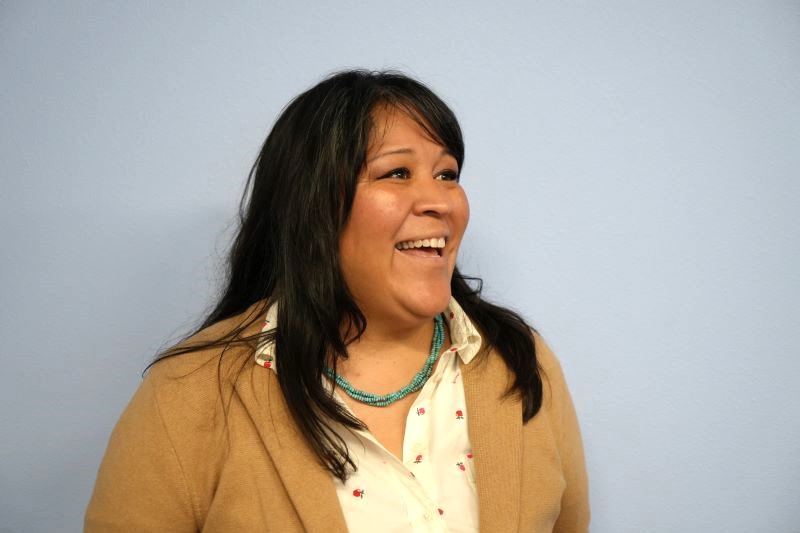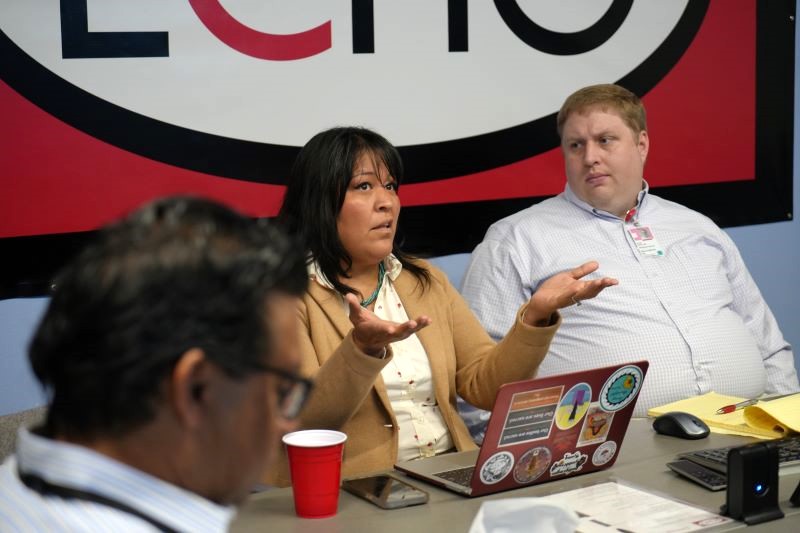In this Q&A, Project ECHO interviews Nicolle Gonzales, Certified Nurse Midwife, who recently stepped into a leadership role with the Improving Perinatal Health ECHO program. The program focuses on community-based “perinatal care” – the health care taking place before, during, and up to one year after giving birth.
You have nearly two decades of maternal health experience in hospital and community settings, alongside founding your own birthing services nonprofit organization. What brought you to Project ECHO?
Gonzales: I learned of Project ECHO a few years ago and started paying closer attention when, through my nonprofit, I attended a meeting about improving maternal health in our state. I really loved the model Project ECHO had created around sharing information and working with hospitals.
I’ve worked in many aspects of maternal care in New Mexico, practicing as a Navajo nurse midwife for 12 years, living in northern New Mexico and now in Albuquerque, and founding the Changing Women Initiative, which is the only Native women-led health collective in the United States. There is still work to do in building relationships in our community. My expertise is making that bridge.
Can you share more about what it looks like to build connections between hospital care and community care, including our rural birthing centers and midwives that help with home births?
Gonzales: I have the privilege of having worked in both community settings and hospital settings. There are assumptions from each setting about how the other works, and those assumptions can create barriers. I joined the ECHO team because I wanted to break down barriers and provide insight on how things work – in all kinds of perinatal care. Transformation on this is possible. What Project ECHO does is one aspect of support for bringing multiple perspectives to perinatal education.
What are some of your considerations when you talk about bringing together all types of knowledge on maternal and perinatal health?
Gonzales: I am immersed in traditional birth practices as a Dine’ woman. But I also traveled to other communities outside of New Mexico to learn about their traditional birthing practices. Unfortunately, many of our communities have been really traumatized by medical practices and mistreatment. Hospital settings can be where traditional wisdom and knowledge have been displaced.

Gonzales’ work has taken her around New Mexico, most recently founding the only Native women-led health collective in the United States. Photo Credit: Tara Memarian for Project ECHO, November 2023.
What does it mean to you to be a leader at Project ECHO within this particular program?
Gonzales: At ECHO, I feel, as a woman, I have an opportunity to lead in a way that’s different and framed from my communities: being mutually supportive, being culturally aware, and being willing to integrate into our learning process. I feel ECHO represents that. I don’t feel like I’m in a leadership position – I feel like I’m part of a team. My leadership style is lifting up folks so that they can come into their own power.
This is a critical role where you are building on a lot of professional experience and lived experience. What do you envision for Project ECHO?
Gonzales: We are looking, always, at the best way to share ideas. Ultimately, we are looking at building a more prepared workforce for prenatal health, where everyone in community and hospital settings can have knowledge and understanding of diverse birth practices.
To join the Improving Perinatal Health ECHO Program, register on iECHO.org, Project ECHO’s proprietary telementoring platform.
Featured Image Credit: Nicolle Gonzales leads a discussion during an ECHO session for the Improving Perinatal Health ECHO Program. Photo Credit: Tara Memarian for Project ECHO, November 2023.

